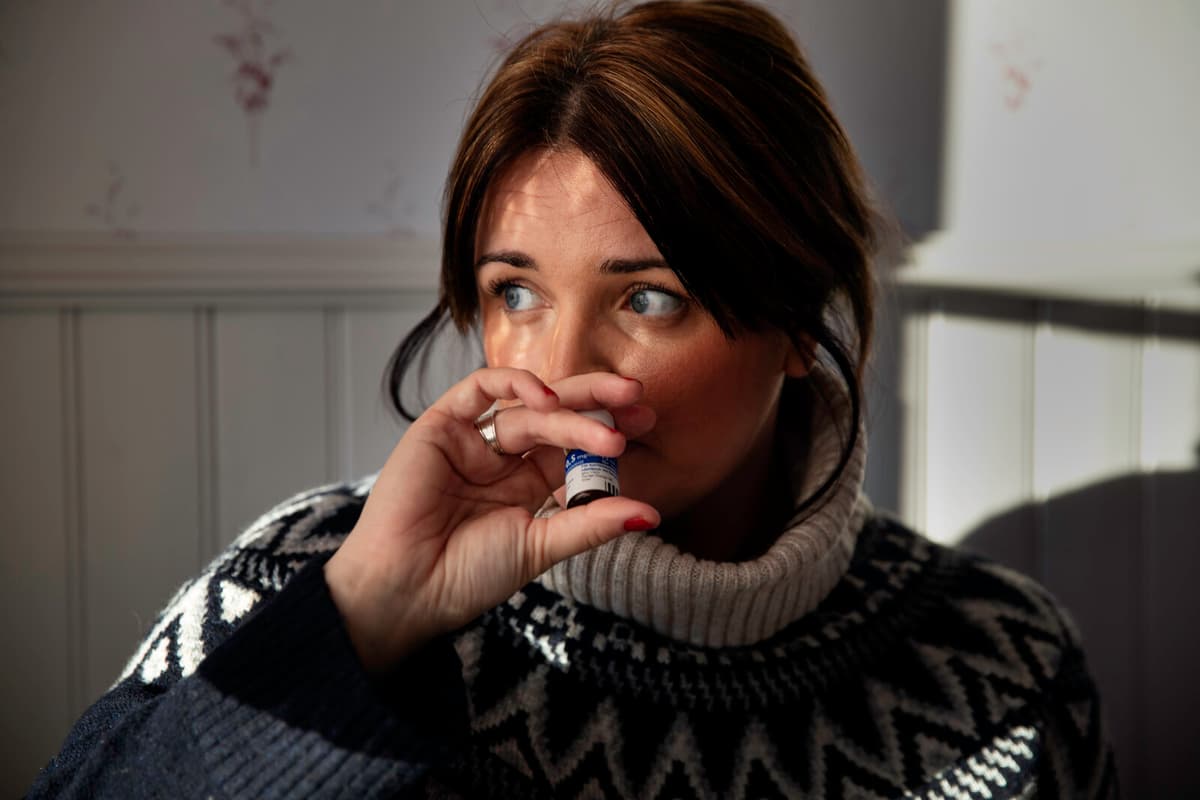Twelve percent of Swedes use decongestant nasal sprays several times a month, and half of them claim to be dependent, according to a Sifo survey commissioned by Apotek Hjärtat.
Not entirely surprising, thinks Catharina Claesson, Pharmacy Manager at Hjärtat.
It's also quite easy to get dependent on it, she says.
According to the E-health Authority, sales have skyrocketed. In 2014, 10 million packages were sold, which corresponds to 1,040 per 1,000 inhabitants. In 2023, the figures were 18.6 million and 1,765.
Many may not think that over-the-counter medications can also have side effects. So it's not certain that you're aware that you can create a dependency spiral, says Claesson.
Nasal bleeding and impaired sense of smell
Sara Örjansdotter Paulsson has been using nasal sprays for 15 years. She always has a spray bottle in her handbag, in her jacket pocket, and in her desk drawer at work. About once an hour, her nose swells up again, and the spray is brought out.
I live up in Jämtland where it's not always close to the nearest store. It can be on the level that I need to drive half an hour to buy nasal spray, she says.
The frequent spraying has ruined her mucous membranes, she explains. Her sense of smell and taste are worse, and sometimes she wakes up with nasal bleeding. She tried to quit and had a few nights' break – but relapsed.
If she ever runs out of nasal spray before bedtime, panic sets in. Just the thought of it makes her nose feel congested.
It's the worst feeling right there and then. That's when you realize you're really dependent, she says.
"Never questioned"
Throughout all her years of buying nasal sprays, no one at the pharmacy or in the stores has ever questioned her, warned her, or recommended another product, she says.
I think they absolutely should ask more, she says.
Catharina Claesson says that staff have a duty to talk to customers when they stand at the cold medicine shelves. But she admits that pharmacies could do more, for example, have clearer signs.
It's usually just a small label on the shelf. But I know myself that you don't always look there or read it carefully. It can definitely be improved, she says.
Facts: One in 16 dependent
Sifo has, on behalf of Apotek Hjärtat, asked about nasal spray use. 4,216 people in the randomly recruited Sifo panel responded to the questions between January 7 and 16 this year. 12 percent claim to use decongestant nasal sprays (such as Nezeril and Otrivin) several times a month. 54 percent of them claim to be highly or somewhat dependent on nasal sprays. More women (62 percent) consider themselves dependent.
Source: Apotek Hjärtat






